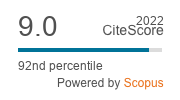To evaluate the antiallergic effect of newly characterised probiotic strains, Lactobacillus fermentum NWS29, Lactobacillus casei NWP08 and Lactobacillus rhamnosus NWP13, mice were divided into six experimental groups: control, ovalbumin (OVA), NWS29, NWP08, NWP13 and L. rhamnosus GG (LGG). Mice were immunised and probiotics were administered via oral gavage followed by challenge with OVA. After last challenge with OVA, inflammatory cells in bronchoalveolar lavage fluid (BALF), recruitment of inflammatory cells in airways and OVA-specific immunoglobulin E (IgE) in serum were determined by Giemsa, haematoxylin and eosin (HE) staining, and ELISA, respectively. Relative mRNA expression of interleukins (IL-4, IL-5, IL-10, IL-13 and IL-17), transforming growth factor-β (TGF-β) and interferon-γ (IFN-γ) in lung and spleen tissue was determined by real time RT-PCR. OVA-specific IgE levels, recruitment of eosinophils and mRNA expressions of inflammatory cytokines were remarkably increased in OVA-exposed mice compared with the control group. Administration of NWS29 and NWP13 suppressed inflammatory cell infiltration in airways and BALF, and level of OVA-specific IgE in serum of OVA-exposed mice. Furthermore, NWS29 and NWP13 also abrogated the mRNA expression of 1L-4, IL-5, IL-13 and TGF-β in mice immunised and exposed to OVA. Our findings suggest that NWS29 and NWP13 might be good candidates for the prevention of allergic airway inflammation.
RESEARCH ARTICLE
Amelioration of ovalbumin induced allergic symptoms in Balb/c mice by potentially probiotic strains of lactobacilli
M. Nawaz Related information
1Department of Microbiology, University of Veterinary and Animal Sciences, Out-Fall Road Lahore, 54000 Lahore, Pakistan
, C. Ma Related information2Center for Disease Control and Prevention of Xi’an, 710054 Xi’an, Shaanxi Province, China P.R.
, M.A.R Basra Related information3Department of Chemistry, University of the Punjab, 54590 Lahore, Pakistan
, J. Wang Related information4UCD Centre for Food Safety, School of Public Health, Physiotherapy and Population Science, University College Dublin, Belfield, Dublin 4, Ireland
, J. Xu Related information5Department of Immunology and Pathogenic Biology, School of Medicine, Xi’an Jiaotong University, 76 Yanta West Road, Xi’an, Shaanxi 710061, China P.R.
*xujiru@mail.
*xujiru@mail.
Beneficial Microbes: 6
(5)- Pages: 669 - 678
Published Online: April 13, 2015
Abstract
2022 Journal Impact Factor
5.4
source: Journal Impact Factor 2023™ from Clarivate™

Institutional Offers
For institutional orders, please contact [email protected].
-
A.A. Hibberd, C.C. Yde, M.L. Ziegler, A.H. Honoré, M.T. Saarinen, S. Lahtinen, B. Stahl, H.M. Jensen and L.K. Stenman
-
E.E. Blaak, E.E. Canfora, S. Theis, G. Frost, A.K. Groen, G. Mithieux, A. Nauta, K. Scott, B. Stahl, J. van Harsselaar, R. van Tol, E.E. Vaughan and K. Verbeke
-
K. Venema, J. Verhoeven, C. Beckman and D. Keller
-
E. Arvidsson Nordström, C. Teixeira, C. Montelius, B. Jeppsson and N. Larsson
-
J.E. Haarhuis, A. Kardinaal and G.A.M. Kortman
-
E.E. Blaak, E.E. Canfora, S. Theis, G. Frost, A.K. Groen, G. Mithieux, A. Nauta, K. Scott, B. Stahl, J. van Harsselaar, R. van Tol, E.E. Vaughan and K. Verbeke
-
K. Lippert, L. Kedenko, L. Antonielli, I. Kedenko, C. Gemeier, M. Leitner, A. Kautzky-Willer, B. Paulweber and E. Hackl
-
K. Tsilingiri and M. Rescigno
-
M. Ozen and E.C. Dinleyici
-
Y. Kobayashi, T. Kuhara, M. Oki and J.-Z. Xiao



